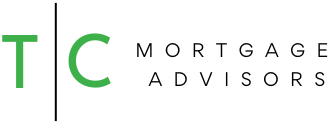Understanding Down Payments
A down payment is essentially a portion of the total price of the home that is paid up front. This initial payment serves as part of your overall loan balance and helps lenders assess your risk when it comes to approving your mortgage. It also helps determine what loan terms you qualify for. Generally speaking, most lenders require a minimum of three percent down, but this amount can vary depending on your individual situation and credit score.
Types of Down Payments
When it comes time to make a down payment on your new home, there are two main types to consider — cash or trade-in equity. Cash payments are often preferred because they allow you to pay off more of the loan balance upfront, which can result in lower interest rates and shorter loan terms over time. On the other hand, if you have existing equity from another property that you purchased previously (such as from selling an old home) then that equity can be used as part of your down payment instead of having to use cash funds.
Saving for Your Down Payment
Saving for a down payment requires some financial planning ahead of time. If possible, it’s best to start saving early so that you have enough funds available when it comes time to purchase your home. To do this, create a budget by adding up all monthly expenses such as rent/mortgage payments, groceries, utilities and insurance costs in order to get an idea of how much money is left over each month after bills are paid. Then set aside whatever extra money you have each month into a dedicated savings account specifically designated for the purpose of saving up funds for your future down payment on a new home purchase. Additionally, if possible try not to use credit cards too frequently or take out loans during this period since doing so may impact your ability to secure financing later on when it comes time to purchase a house or obtain favorable loan terms due to having higher debt-to-income ratios than preferred by lenders who issue mortgages.
Making plans ahead of time is key when it comes to understanding how much money will be required as a downpayment when purchasing a home in the future. Knowing about cash versus trade-in equity options along with developing strategies for saving funds can help ensure you will be well prepared when it’s time make your move into homeownership ownership by understanding how much money will be needed upfront in order cover your down payment requirements prior to closing. For more info – please visit https://tcmortgageadvisors.com/downpayments/ . Contact your Mortgage Professor at (763) 260-5180 to go over your specific situation or apply now by clicking here
. With these tips in mind, you will be equipped with the knowledge necessary to navigate through this important step in achieving home ownership success!


